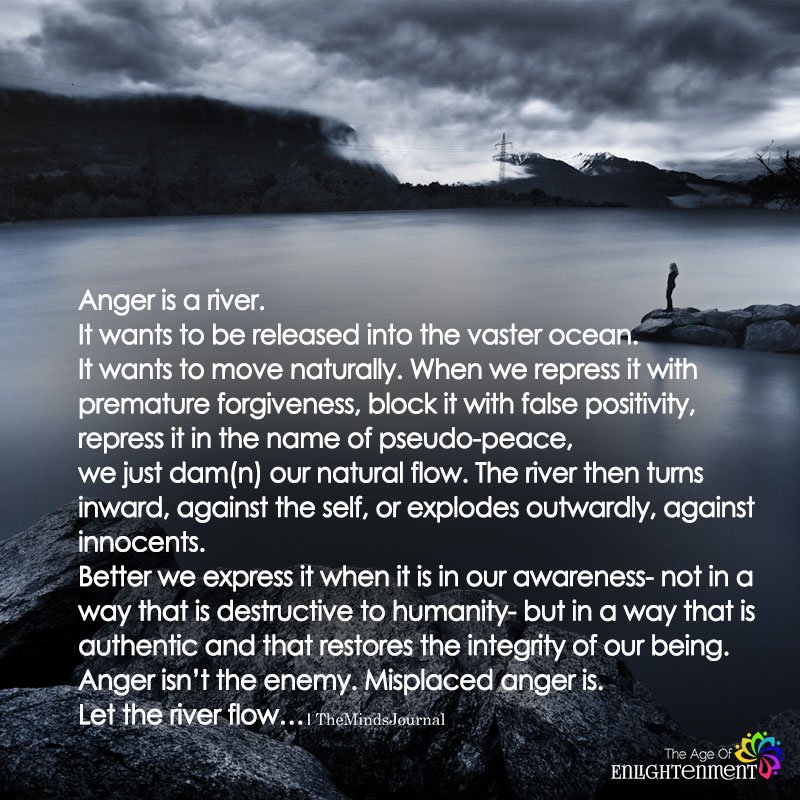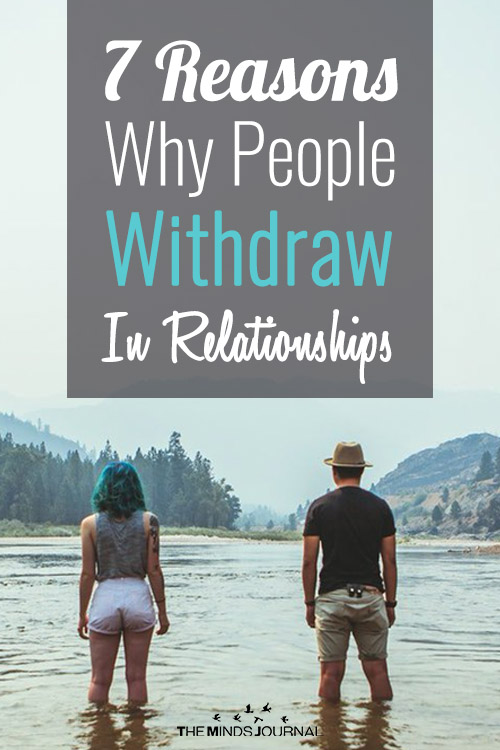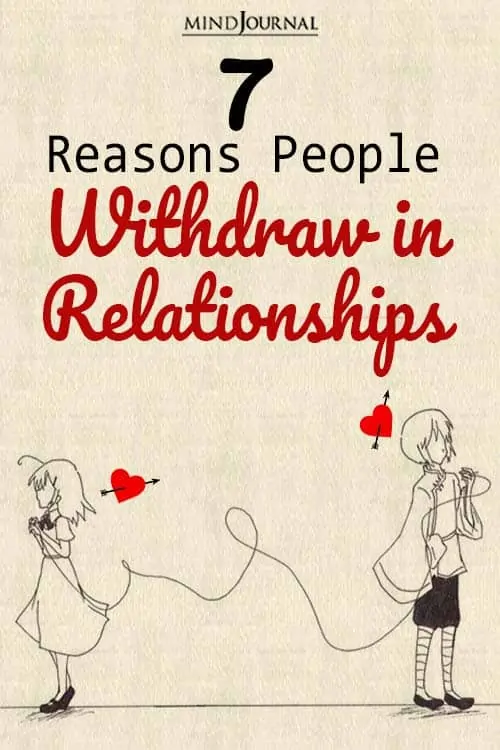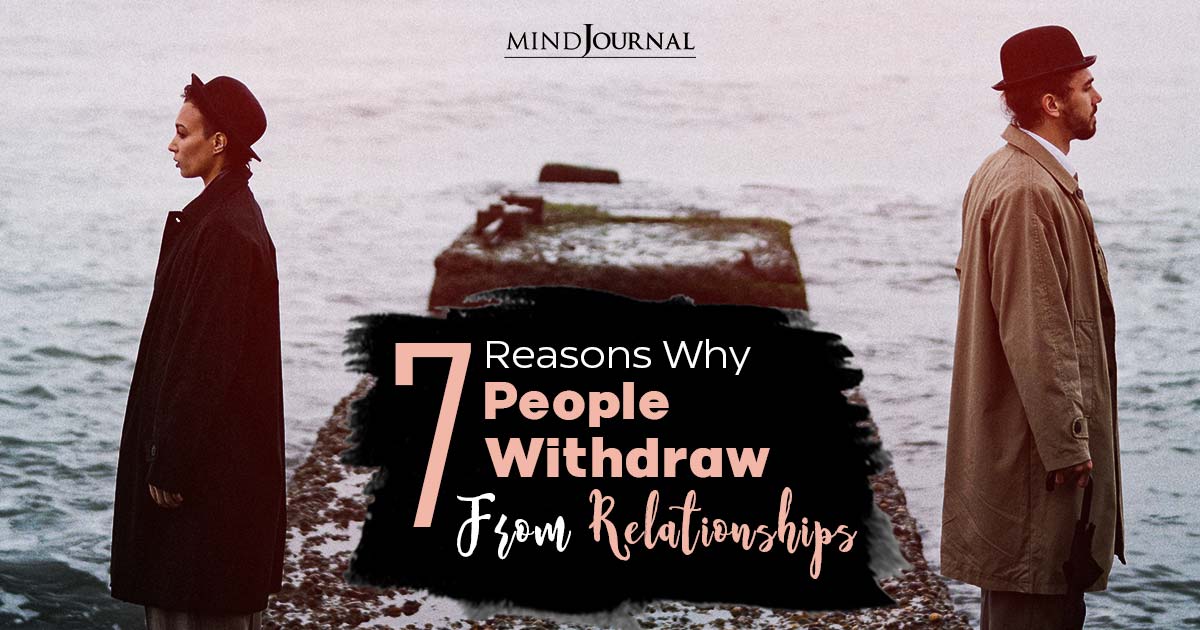Noticing unpredictable changes in your partner’s behavior? And wondering why people withdraw from relationships if they’re in love? The reasons behind them might surprise you. Let’s find out!
It’s not your imagination – that sudden, inexplicable distance between you and your partner.
We’ve all felt it.
That certain chill in the air. The posture slightly too rigid and closed off. The tone that is just a little too clipped. The words may be right, but something is off.
A disconnection. It’s like the plug that charges the relationship is only partly plugged in.
It happens in every relationship. It can be as minor as one partner withdrawing for a few moments or hours. Or, it can also prove fatal to the marriage when withdrawal becomes the default position.
So why do people withdraw from their partners? What makes the connection faulty and the charge intermittent?
Here’s Why People Withdraw From Relationships
1. Fear of Intimacy
It’s scary to allow someone into your innermost thoughts, dreams, and fears. As relationships progress into ever-deepening levels, it’s common to pause and even retreat for a bit to acclimate to the new level of connection just like a deep-sea diver has to take breaks on the return to the surface.
This type of withdrawal, when short-lived, is nothing to worry about. It’s simply time spent adjusting and processing before the next level is reached.
If, however, the retreat from intimacy occurs early and often, it may be a sign that someone is not yet ready to be vulnerable and open.

2. Fear of Rejection
This withdrawal-type can lead to a sad self-feeding loop. One partner is afraid of rejection and decides that he or she would rather retreat than risk approach. The other partner can then easily feel rejected by their partner pulling back. You can have a situation where both people crave connection yet are too afraid to risk asking for it.
If you find that you are afraid of rejection, work to address your own needs that allow this worry to grow. If your partner makes a bid for attention, work to respond in a way that is accepting rather than rejecting.
Related: The 7 Steps To Separation: Factors That Contribute To The Dissolution Of A Marriage
3. Flooding
Some people are more sensitive than others; an amount of emotion that may feel perfectly tepid to one person may be scalding to another. When somebody floods, their emotions are overwhelming them. And even though their surface may remain placid, inside they are a tantruming toddler.
When someone is flooded, they are unable to respond rationally and struggle to normalize their emotional balance. When something is too intense, it’s natural to retreat for a time.
Flooding is often a sign of some unresolved trauma, the emotions triggered having more to do with the past than the present.
If your partner is easily triggered, work to be supportive and patient while encouraging him or her to address the underlying issues. If you find that you are easily overwhelmed, make resolving your trauma a priority.
4. Anger
Some people wear their anger on their sleeves, leaving no doubt as to the emotion at the helm. Others are more covert, either because they have been trained to hide anger or because they are afraid of addressing the underlying problem face on.
And furtive anger can often lead to withdrawal when one partner steams in silence. When anger is at a peak, it is often advisable to retreat for a time to calm down and think more rationally.
That respite should be followed by an approach, communicating the anger and working together to resolve the broken boundaries. If one (or both) partners consistently fume from afar, the anger will only mutate into resentment, causing a more permanent rift in the relationship.

5. Introversion
Some people simply require more solitude than others. It’s easy for an extrovert to sense a disconnect from their introverted partner when the latter is retreating in order to refuel his or her energy.
If you are the more introverted partner, it is your responsibility to communicate your need for alone time to your spouse and make connection and intimacy a priority when you are together. If you are feeling left out by an introvert, learn how to establish a connection without overwhelming their senses.
Related: Introverts and Withdrawal: 5 Reasons Introverts Withdraw
6. Outside Pressures
Marriages do not exist in a vacuum. We all have demands placed (okay, sometimes heaped) upon us from outside the relationship.
Withdrawal can occur anytime someone is feeling overwhelmed and overworked. It’s a method of survival, cutting off blood flow to some areas in order to focus on what is critical in the moment.
A marriage can survive short-term starvation of attention and energy. Yet leave the tourniquet on too long, and there will be no marriage to return to. If your spouse is in survival mode, strive to be compassionate yet also persistent about maintaining connection. If you are the drowning one, don’t neglect to ask your spouse for a hand.
7. Pursuer/Withdrawal Dance
This is one of the fatal relationship patterns often described by Gottman. Understand that your partner’s withdrawal has more to do with them then with you.
Don’t take it personally. But at the same time, take it seriously, because a habit of withdrawal can initiate a catastrophic domino effect. The initial withdrawal can occur for any of the above reasons.
If it is then followed by a desperate grab for attention by a panicking spouse, it sets up the choreography for a dance where one partner is always retreating and the other is always grasping.
All relationships have an ebb and flow of intimacy.
The challenge is to learn how to ride it out rather than allow any periods of withdrawal to slide into a downward spiral of disconnection.
For the partner sensing the distance and craving connection, the key is to relax and not push away or flood the more reserved partner. And for the attachment to return, the retreating partner must be aware of his or her own patterns and make a sustained effort to maintain the intimacy.
Written by Lisa Arends
Originally appeared in The Good Men Project












Leave a Reply
You must be logged in to post a comment.